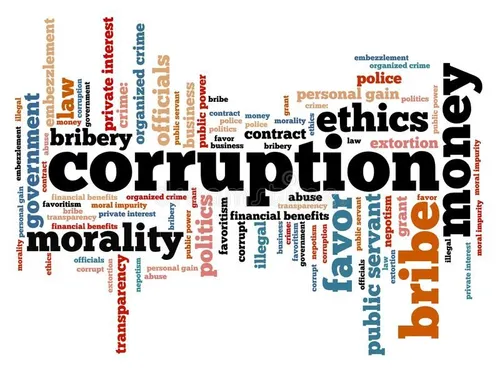· IT
Marx and the Corporations: Chapter 10 - The Brainwash and the Bulls..it
Are corporations brainwashing us? Between mission statements, buzzwords, and outright propaganda, it's hard to tell. Companies rarely admit fault, oversell products, and prioritize KPIs over people. Is the corporate grind worth it? One veteran reflects on the good, the bad, and the ugly.

I have several good friends who are entrepreneurs, some of them since they started their first job. Self-made people run their businesses with all the good and the bad. They always called me “corporatist – corporate guy” and made fun of me that I am brainwashed by corporations as all totalitarian regimes do. I have never taken it seriously or personally, but is there any bit of truth to that? Allow me to dig into it deeper.
Corporations must have a mission, a vision, and a culture. Otherwise, they would not be corporations lasting tens of years, some even hundreds. I mean, people need to know what its objectives are when joining a large enterprise, how to reach those objectives, and what the organization aspires to reach in the future. Company culture is the outcome of the daily formal and informal behaviors around the mission and the vision in the workplace. Clearly defining and promoting them can be qualified as brainwashing. Maybe, but I do not think there is something wrong with that. Please do not forget that I owe an engineer's mind; clarity is crucial.
Another example of brainwash is the obsessive repetition in messages of some “magic” words and themes. In the IT world we are used with revolutions and hot topics every now and then, rather often lately. For people, specifically for the younger generations, getting daily tens of messages around the same few hot things annoy them and most of the time these messages end up in the bin. The whole purpose is lost and a good Communications manager knows when to stop. Unfortunately Communication is just a piece of the puzzle, not everything sent out to the practitioners is controlled by them. Corporations have layers and layers of managers, leaders, seniors, gurus etc.
Let’s change the angle now. Propaganda is a term from Latin propagare, which means to spread or to propagate. Initially, the term was used by the Catholic Church and only later in history, in the 19th century, took a pejorative or negative connotation. Propaganda was mastered by totalitarian regimes like fascism or communism in relation to a lack of speech freedom. For large companies propaganda is called informally corporate bulls..it. All companies are using it, only the percentage of use is different.
Companies need to influence or persuade the audience, internal and external, through less objective and well-selected messages in order to create a certain perception. Sounds familiar? A few major examples are the use of personal data by many of the largest social media companies, the car emissions violation scandal, the use of AI in cancer diagnosis and treatment, the security breaches found in applications and platforms, etc. Basically, none of the companies involved in these extremely disturbing wrongdoings recognized a flaw in their activity. All were Snow White initially, and all the propaganda tools were used to divert attention away from criticism. Many ended up paying huge fees.
One of the most annoying things related to the way that corporate communication works is that they are never wrong. There are very few examples where a large company recognized upfront that it was doing something incorrect, on purpose, or by mistake. Mistakes are natural, part of us being humans and not AI, check the sarcasm (we learn these days that AI could go completely wrong)! The fact that their top managers finished their careers sacked or, even worse, in jail, covers the on-purpose part.
As irritating as that is the jubilation that many leaders show in their speeches for absolutely zero reason. I encountered quarters and quarters of severe restrictions due to the organization's poor results, and I saw top managers coming in front of us and behaving like they had just climbed Everest. We were all extremely surprised and somehow nauseated, wondering what that person had for breakfast.
Another disturbing communication method used by corporations is the overselling or selling of products and services that are extremely far from being ready to use in the marketplace in a decent period of time. There are many examples of companies that simply lied to their shareholders or customers in the last 10-15 years about their products. A few examples somewhat related to the IT world are the Equifax data breach, the Theranos fraud, the Boeing 737 Max crashes, the Cambridge Analytica scandal involving Facebook, the Wells Fargo fake accounts or the Uber policies for drivers, to mention only a few. Truth is not regarded as a value in corporations, which is similar to the communist regimes. What matters is to create a certain perception and to dissimulate.
One of my former employers, like many other companies, used to keep these great global events. The problem was that some of the products and services that were presented there happened to be ready to use in 3-5 years. But the customer saw those there in demos and started to ask for them right away, which obviously was impossible. It looks like this aggressive marketing approach didn't harm the company much, as today is still a very successful one in the marketplace. However, there are only few lucky examples like that one; many other companies simply failed to deliver and lost the client's confidence.
In my long-term experience with management and leadership of large teams, there is no other better ingredient during a face-to-face event with people or even a virtual one than being authentic. People are bored and tired of corporate messages, and they really appreciate phrasing or a gesture that is different from what they hear and see on a daily basis. People who can do that often become immediately inspirational for others.
One other important thing to have always in mind is one has to be careful with the communication channels and tools. Every bit of your correspondence can be used against you, exactly like in the thriller movies. Do not use the company phone or laptop for your personal matters, the corporation will use the info found on those machines against you if needed despite the GDPR. And you can’t normally do anything about that as they are considered corporation hardware. Think Orwell’s “1984” always.
There are many areas covered more or less by bulls…it in a large enterprise. Very seldom does one get a second chance when making a mistake; the empathy and the human touch decrease tremendously while one climbs the hierarchy. Be always cautious when dealing with your manager. Sometimes, your interest is in direct conflict, and do not think for a second that your manager is going to jump into fire for you. Only the KPIs matter; nothing else is more important, maybe with the exception of the legal liabilities. There is no real interest at the top of the organization in the so-called well-being. The work-life balance is just a figure of speech; nobody really cares when something urgent or contractually biding must be sold or delivered. I probably missed some; please feel free to comment.
One example that says it all. We were right at the top of the pandemic. People were dying thousands and thousands across Europe. Many countries were under lockdown. Airports were empty, flights were very few and empty, restaurants, shops, and hotels were closed. During all these, we had to ship a rather large team from a country in CEE to work on the client side somewhere in the heart of Europe week after week as per the contract. To a completely ignorant and rigid Public Sector client which was invoking data security reasons. By request of an impassive supplier of services which was afraid being sued and preferred to play with our colleagues health and maybe even lives. The approval of the trips was one of the toughest decisions of my career. I still feel guilty about that but I am only happy that all our colleagues returned to their families healthy after months and months of being abroad and travelling right in the middle of the pandemic. I was definitely very lucky. They too!
About the Brainwash and the Bulls..it during the communist era I can write a novel, “War and Peace” size but I will not waste the time. There is a major difference though between those days and today. During those times nobody believed what the regime was selling to the people through their communication channels, nobody! Their inflated KPIs, their lies about the great society we were living in, about the great leaders we had etc. It was easy then to recognize the propaganda as the proof was there, all over the place right in our eyes. Today for many people is rather difficult to discern between reality and fake news, between good and bad. Hence the political situation that many countries, even some well-developed, are struggling with. This applies to some corporations as well.
In conclusion, we decided to work for corporations, so we have to accept certain specific unpleasant things, no doubt about that. I always told my colleagues that when you wake up in the morning, you should remind yourself that you work for a corporation. If you are not happy with that day after day after day, at some point, you should change something in your life, maybe the company, maybe look for entrepreneurship. But do not go to sleep unhappy with your job for a long period of time.
Personally, if I were asked to do it again and enroll my career from start to end in corporations, I would most probably say no. I cannot deny a lot of positive aspects, specifically around some great people I met and worked with, but overall, the frustration and disappointment are significant. The price paid is too high, and the outcome doesn't cover the daily effort. Not even close! But I would advise everyone to get some corporate experience during their career; it is a very helpful one, for a while.
Next week as a bonus: The Epilogue.



